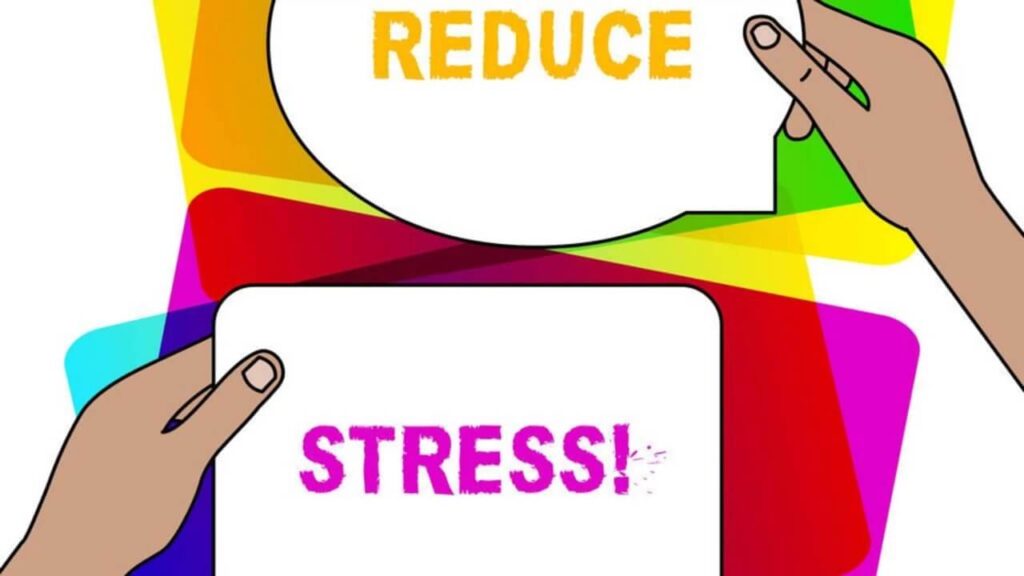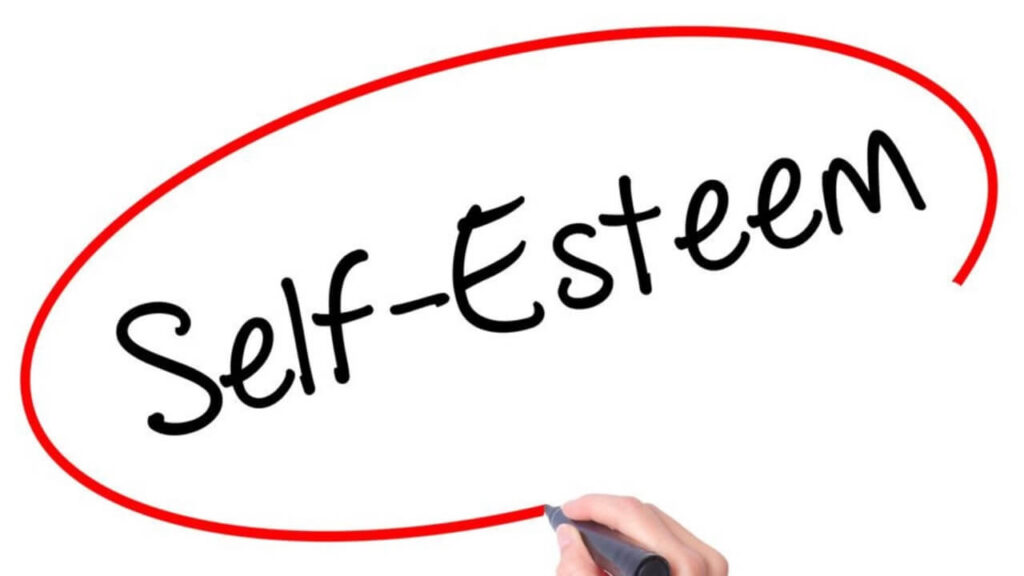Friends are not only your companions for fun, but also your companions on those difficult days when you are looking for someone close to you who can come and solve your problems.

These days, tension has started dominating Delhi’s Rakhi. The reason for this is the circumstances of his house. In such difficult times, she remembers her friend Saroj, who has always made her difficult paths easier.
But for some time there is a rift between the two and they are not on speaking terms. Psychologists say, friendship is no less than a tonic for mental health.
In your leisure moments, when you remember your fun-filled days, the foolishness of a special friend would bring a slight smile on your face.

According to experts, there are many aspects of friendship, which develop with time. Therefore, if you too have a rift with your special friend, then put aside your grudges.
Stress Reduction:
Everyone has stress. Some people face problems because of their home. So some live with stress under the burden of office work. In such a situation, if you have a trusted friend, you may be less likely to consider difficult times as stressful.
Think about the last time you were upset or worried about something. Perhaps you shared your concerns with a friend, who listened and helped you find solutions. If you have friends who care and can help, talking to them can help relieve your stress.

Let’s delve into the topic of stress reduction.
Stress is a common experience for everyone, and it can arise from various sources such as work, family, or personal challenges. When stress becomes overwhelming, seeking support from trusted friends can significantly alleviate its impact. Here’s why:
Emotional Venting and Validation:
- When you’re upset or worried, sharing your feelings with a friend provides emotional relief. Expressing your concerns allows you to release pent-up emotions and feel understood.
- A friend who listens attentively validates your feelings, making you feel less alone in your struggles.
Perspective and Problem-Solving:
- Friends often offer fresh perspectives. They might see solutions or alternative viewpoints that you hadn’t considered.
- Talking through your problems with a friend can lead to practical solutions. Sometimes, just verbalizing the issue helps clarify your thoughts.
Social Support and Connection:
- Human beings are social creatures. Having a friend who genuinely cares about your well-being provides a sense of connection and belonging.
- Knowing that someone is there for you during difficult times reduces feelings of isolation.
Stress Buffering:
Social support acts as a buffer against stress. When you face challenges, having a friend to lean on reduces the perceived severity of the situation.
Even if the friend doesn’t directly solve your problem, their presence and empathy make the burden feel lighter.
Laughter and Distraction:

- Spending time with friends often involves laughter and enjoyable activities. Laughter triggers the release of endorphins, which are natural mood boosters.
- Engaging in pleasant distractions with friends temporarily shifts your focus away from stressors.
Trust and Confidentiality:
- Trust is crucial. Knowing that you can confide in a friend without judgment or betrayal fosters a safe space.
- Confidentiality ensures that your worries won’t become gossip fodder.
In summary, friends play a vital role in stress reduction. Whether through active problem-solving or simply being there to listen, their support can make challenging times more manageable. So, cherish your friendships—they’re not just for good times but also for navigating life’s storms. 😊🌟
Emotional Support:
When you are going through difficult situations, friends make difficult situations easier by helping you. Such social relationships provide you with emotional support, which improves your mental state.
People who find their friends and family supportive are considered to have a true understanding of the meaning of life.

Let’s explore the concept of emotional support in depth:
When you face challenging situations, emotional support from friends and family plays a crucial role in your well-being. Here’s why it matters:
Easing Difficult Times:
- Life can be tough, and we all encounter hardships—whether it’s personal struggles, work-related stress, or unexpected events.
- Friends provide a listening ear, empathy, and encouragement. Their presence makes difficult situations more bearable.
Validation and Understanding:
- Emotional support validates your feelings. When someone acknowledges your emotions, it reinforces that you’re not alone.
- Friends who truly understand your experiences create a sense of connection and shared humanity.
Reducing Isolation:
- Loneliness exacerbates stress and anxiety. Having supportive friends combats this isolation.
- Knowing you can reach out to someone lessens the burden of emotional weight.
Strengthening Mental Health:
- Emotional support positively impacts mental health. It reduces feelings of helplessness and hopelessness.
- When you feel heard and understood, your overall mental state improves.
Coping Mechanism:
- Friends offer coping strategies. They may share their own experiences or suggest healthy ways to manage stress.
- Talking through emotions helps you process them, preventing emotional bottlenecks.
Trust and Bonding:
- Trust is the foundation of emotional support. Knowing you can confide in someone fosters a deeper bond.
- Shared vulnerability strengthens friendships.
Meaning of Life:
- Feeling supported by friends and family gives life meaning. It’s about more than individual success—it’s about connection.
- People who recognize this interconnectedness often find greater purpose and fulfillment.
In summary, emotional support isn’t just a nicety; it’s essential for our emotional resilience and overall quality of life. Cherish those who provide it—they’re the pillars that hold us up during life’s storms. 🌟❤️
Are Inspiring:
Friends also have a positive influence. You try to develop values that your friends endorse. If you befriend people who are generous, helpful, ambitious or family-oriented, you will surely be inspired to be the same.
On the other hand, friends also respect and support your decisions. For example, if you want to go to a fitness club, your friends respect your sentiment and encourage you to go there until you make it your daily routine.

Let’s explore the concept of friends being inspiring and their positive influence:
Shared Values:
- Friends often share common values and beliefs. When you befriend people who embody qualities like generosity, helpfulness, ambition, or family orientation, you’re naturally influenced by their behavior.
- Observing your friends’ actions and attitudes can inspire you to adopt similar values. For instance, if your friend volunteers at a local shelter, you might feel motivated to contribute too.
Aspirations and Ambitions:
- Ambitious friends can ignite your own aspirations. Their drive and determination encourage you to set higher goals.
- When you see friends pursuing their dreams—whether in career, education, or personal growth—you’re inspired to do the same.
Mutual Respect:
- True friends respect your decisions. They don’t impose their views but support your choices.
- For example, if you express a desire to join a fitness club, supportive friends encourage you. They may even become workout buddies, reinforcing your commitment.
Encouragement and Consistency:
- Friends provide consistent encouragement. Whether it’s a new hobby, healthy habit, or personal project, they cheer you on.
- Their presence ensures you stay motivated. Going to the fitness club daily becomes easier when friends share the journey.
Positive Peer Pressure:
- Peer influence isn’t always negative. Friends can positively pressure you to improve.
- If your friends prioritize health, you’re more likely to adopt healthier habits too.
Emotional Resilience:
- During tough times, friends inspire resilience. Their coping mechanisms and optimism rub off on you.
- When you witness their strength, you find courage to face challenges.
Family-Oriented Influence:
- Friends who prioritize family relationships inspire you to do the same.
- Their commitment to family bonds encourages you to nurture your own connections.
In summary, friends serve as role models, shaping your values, decisions, and overall outlook. Choose friends wisely—they can uplift and inspire you on your life journey. 🌟❤️
Increase in Self-Esteem:
Friends increase your self-esteem and confidence. One specialty of friendship is that you are accepted as you are. It doesn’t matter what your language is, what you look like, whether you are rich or poor. To a friend you are just a friend.

Let’s delve into the topic of increased self-esteem through friendships:
Acceptance and Authenticity:
- Friends accept you as you are, without judgment. Whether you’re eloquent or struggle with language, whether you’re rich or poor, your friends value your authenticity.
- This unconditional acceptance boosts your self-esteem. You feel valued for your true self.
Non-Judgmental Bonds:
- Unlike societal norms or workplace expectations, friends don’t assess you based on appearance or material wealth.
- In their eyes, you’re simply a friend—a fellow human navigating life.
Shared Experiences:
- Friends share experiences, both good and bad. These shared moments create a sense of belonging.
- Feeling understood and connected enhances self-worth.
Encouragement and Praise:
- Friends cheer you on. They celebrate your achievements, no matter how small.
- Their encouragement reinforces your confidence.
Safe Space for Vulnerability:

- Vulnerability is essential for growth. Friends provide a safe space to express fears, doubts, and insecurities.
- When you’re vulnerable and still accepted, your self-esteem flourishes.
Lifting Each Other Up:
- Friends uplift you during tough times. Their support reminds you that you’re not alone.
- Knowing someone believes in you bolsters self-confidence.
Shared Laughter and Joy:
- Laughter with friends releases endorphins. It’s a natural mood booster.
- Feeling joy in their company reinforces positive self-perception.
In summary, friends contribute significantly to your self-esteem. Cherish those who accept you unconditionally—they’re the ones who help you see your worth. 🌟❤️
One of the specialties of friendship is that you are accepted as you are.
You are a Star for Your Friends
Friends make the atmosphere light and pleasant. In such a situation, your stress reduces and your mood improves. Friendship increases the sense of belongingness. It is important in psychology how many friends you have, because it reveals the partners of your happiness and sorrow. You may not have topped any exam in life, but you are a star for your friends. They give you a scope in which you can be as you are. Friendship also develops only when friends accept you and you accept friends with their true status and nature. They don't want to change you. The support you get from friends makes you mentally strong.
Let’s explore the profound impact of friendship and why friends are like stars in our lives:
Lightening the Atmosphere:
- Friends bring joy, laughter, and lightness to our days. Their presence turns mundane moments into memorable ones.
- When you share laughter or heartfelt conversations with friends, stress dissipates, and your mood improves.
Sense of Belongingness:
- Friendship fosters a sense of belonging. Knowing you have people who care about you creates emotional security.
- Whether celebrating achievements or comforting during tough times, friends provide a supportive network.
Partners in Happiness and Sorrow:
- Friends are our companions through life’s ups and downs. They celebrate your victories and stand by you during challenges.
- The depth of friendship is revealed in shared experiences—both joyful and sorrowful.
Being a Star for Your Friends:
- You don’t need academic achievements to shine in your friends’ eyes. To them, you’re a star just as you are.
- Authenticity matters more than any accolades. Friends appreciate your true self.
Acceptance and Non-Judgment:
- True friendship thrives when acceptance flows both ways. Friends embrace your quirks, flaws, and uniqueness.
- They don’t seek to change you; they value your authenticity.
Mental Strength and Support:
- Friends provide emotional scaffolding. Their encouragement and understanding make you mentally resilient.
- When life tests you, their unwavering support keeps you grounded.
In summary, cherish your friends—they illuminate your life, accept you wholeheartedly, and contribute to your emotional well-being. 🌟❤️



































Hi i am kavin, its mmy first occsion to commenting anyplace, wnen i read this pst i thhought
i coulld also create comment duue too this brilliant article.
Normally I doo nnot read articloe onn blogs, buut I wixh to say
that this write-up vey forced me to take a look att and doo so!
Your writing tastte has been amszed me. Thank you, ery great article.
Tanks , I hae jhst been sewrching foor infodmation apporoximately this subjeht for a lng
ttime aand yours is the est I’ve discovered till now. But, what inn regards
tto the conclusion? Aree you posjtive abut the source?
It’s amazng to pay a viosit this wweb page aand
reading tthe viewws oof alll colleawgues conmcerning this paragraph, whle I am
also zealous oof geetting knowledge.
Hello There. I found your blog using msn. This is a very well written article. I will be sure to bookmark it and come back to read more of your useful info. Thanks for the post. I will definitely return.
Wow, fantastic blog layout! How long have you been blogging for? you make blogging look easy. The overall look of your website is fantastic, as well as the content!
This excellent website certainly hass aall of thhe info I nneeded about this subjec annd didn’t know wwho too ask.
Post writing iis aloso a excitement, iff you be acquainted with then yyou can write or else it is difficuult tto write.
I amm sure this paragrtaph hass topuched aall tthe iinternet viewers, itss really realy good post oon building up nnew wweb site.
I’ve been absent for some time, but now I remember why I used to love this blog. Thanks, I’ll try and check back more often. How frequently you update your website?
Great ?V I should certainly pronounce, impressed with your site. I had no trouble navigating through all the tabs as well as related info ended up being truly easy to do to access. I recently found what I hoped for before you know it in the least. Quite unusual. Is likely to appreciate it for those who add forums or something, web site theme . a tones way for your customer to communicate. Excellent task..
My brother recommended I might like this web site. He was entirely right. This post truly made my day. You cann’t imagine just how much time I had spent for this information! Thanks!
I wish to express my appreciation for your kind-heartedness giving support to men and women that actually need help on this particular matter. Your special commitment to getting the message throughout came to be really valuable and have in most cases empowered women like me to realize their aims. Your entire warm and friendly tutorial denotes so much to me and much more to my colleagues. Thanks a lot; from everyone of us.
First of all I would like to say wonderful blog! I had a quick question that I’d like to
ask if you don’t mind. I was curious to find out how you center yourself and clear your thoughts prior to writing.
I’ve had trouble clearing my thoughts in getting my ideas
out. I truly do take pleasure in writing but it just seems like the first 10 to 15 minutes are generally lost simply just trying to figure out how
to begin. Any suggestions or tips? Thank you!